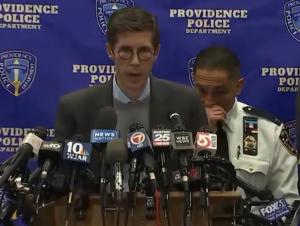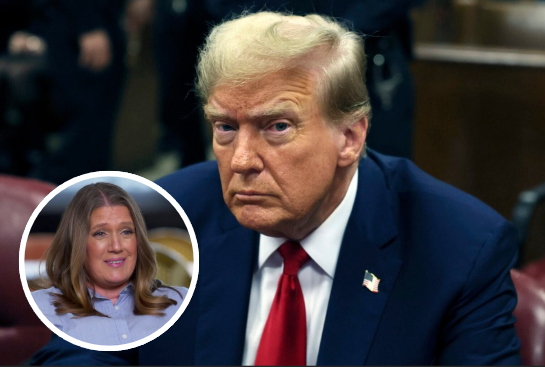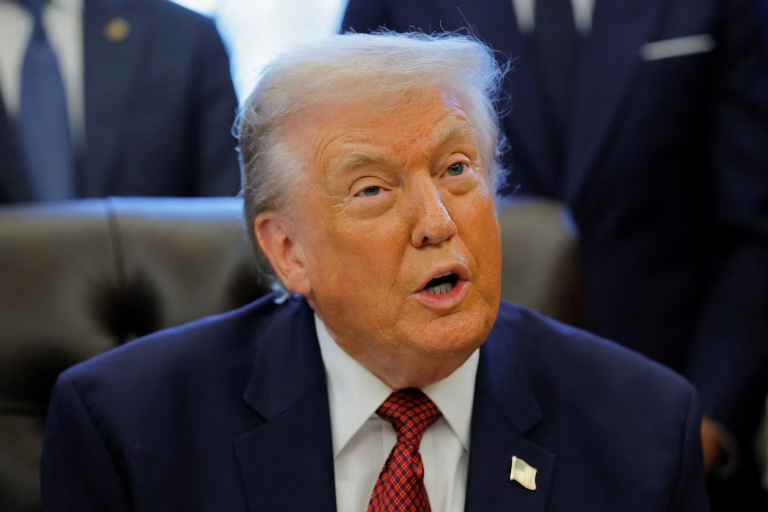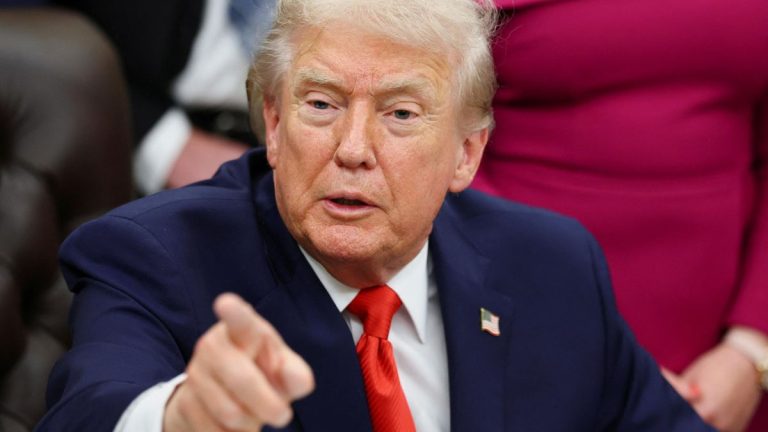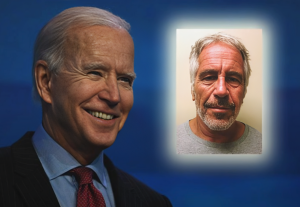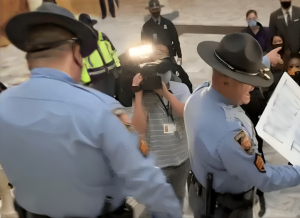Mary Trump, niece of former President Donald J. Trump, has delivered a striking critique of her uncle’s recent forays into existential reflection, asserting that his own remarks about mortality and the afterlife suggest he senses “the end is near.” This dimension of Trump’s public persona—one less discussed than his politics or business dealings—has drawn the attention of his fiercest familial critic, and her interpretation carries weight given their fraught history.
A Longstanding Rift: Mary Trump’s Role as Critic and Whistleblower
Mary Trump is no casual commentator. Her criticisms of Donald have been persistent, merciless, and deeply personal. A trained psychologist and author, she published Too Much and Never Enough in 2020, offering a searing portrait of her uncle’s psychological makeup and family dynamics. In that same year, she sued him over inheritance issues—a lawsuit later dismissed by a judge—cementing her status as both insider and adversary.
Her vantage is unique: grew up embedded in the Trump family’s dynamic, she claims intimate awareness of the personal and emotional undercurrents behind Donald’s public facade. When she speaks about his more introspective remarks, she does so from a place of lived tension, not mere media scrutiny.
From Locker-Room Banter to Mortality Musings: Trump’s Evolution on the Afterlife
Donald Trump’s public musings about heaven and his own death have a curious trajectory. They are at once jarring and revealing—a shift from the bombastic confidence he typically exudes. Over recent months, he has made several statements that depart from his usual posture of invincibility:
-
In some campaign solicitations, emails reportedly invited donors to help him “get to heaven,” asking for small contributions in the face of spiritual uncertainty.
-
On Fox & Friends, he told hosts: “If I can save 7,000 people a week from being killed … I want to try to get to heaven if possible.” In that same breath, he mused about his lowly place “at the bottom of the totem pole.”
-
While aboard Air Force One returning from diplomatic engagements, a reporter asked whether his Middle East trip might improve his chances of admission to heaven. He replied: “I’m being a little cute. I don’t think there’s anything going to get me into heaven. I really don’t.” He continued: “I may be in heaven right now as we fly … I’m not sure I’m going to be able to make heaven, but I’ve made life a lot better for a lot of people.”
These comments stand in stark contrast to the commanding, fate-defying character he often projects. Rather than the bravado of invulnerability, they signal a kind of spiritual wrestling—and Mary Trump interprets it as premonitory.
“It Should Scare the F*** Out of Us”: Mary’s Interpretation
On her YouTube platform, Mary Trump Media, Mary Trump addressed these remarks with a tone of urgency and alarm. She framed them not as rhetorical posturing, but as windows into Trump’s unconscious, latent fears.
She said:
“Donald, and I honestly, I find this a little weird, has been contemplating his own mortality lately. Why is that weird? Well, because I don’t think he believes that he’s mortal. I’m not saying he thinks he’s immortal.
“I’m just saying I don’t think he looks at it in those terms. So the fact that he is starting to reveal some of his unconscious concerns should… how do I put this delicately? It should scare the f*** out of us, quite frankly. It’s almost as if he can see the end is near.”
In Mary’s reading, these aren’t mere rhetorical flourishes to appeal to particular voter segments; they are cracks in the armor—slips that betray an internal reckoning. The idea that someone so used to performing strength and dominance might feel besieged by his own mortality opens a window to something darker, something intimate and unsettling.
She draws a psychological line between Trump’s cultivated self-image and the vulnerable interior life that his comments seem to betray. Her language—especially her use of the phrase “scare the f*** out of us”—conveys the urgency she feels: that these revelations shouldn’t be dismissed as eccentricities but rather probed for their deeper significance.
Beyond the Pageantry: Why We Should Pay Attention
Why should such spiritual musings from a political figure matter? Mary makes a compelling case. Here are a few reasons to take notice:
-
Signals of Decline
For someone who has long projected unyielding energy, strength, and invincibility, these kinds of remarks suggest a shift. They could be an acknowledgment—conscious or not—of aging, vulnerability, or the possibility of an endpoint. -
A Change in Persona
The Trump image is built on certainty, dominance, and unassailable confidence. The language of doubt weakens that image. If a leader publicly questions whether he can “make heaven,” that existential self-questioning introduces a degree of instability into his narrative. -
Political Risk
Opponents or even skeptics within his base could frame these remarks as signs of desperation or weakness. When a subject usually handled with moral gravity—faith, redemption, the afterlife—is tacked awkwardly into campaign rhetoric, it invites scrutiny, ridicule, or exploitation. -
Personal Insight
Mary’s interest is not only political but also psychological. Her longer-term narrative about Donald Trump frames him as someone haunted by the past, driven by resentments, and buffeted by inner insecurities. These comments, she suggests, offer further evidence of someone grappling with his own mortality—something he’s rarely allowed himself to confront publicly.
Historical Echoes and the Weight of Legacy
It is not unprecedented for public figures to ruminate on the afterlife or mortality late in career or life. Presidents, monarchs, and leaders have grappled with their legacies, with how history will remember them, with reconciliation and redemption. But Trump’s situation is unusual, filtered as it is through his reality-show persona and perpetual combative posture.
His references to heaven are less overtly religious than they are rhetorical props—tools to craft a moral justification for his actions or appeal to a religious base. But now, they seem to have broken loose from their rhetorical moorings and veered into confession.
Mary Trump, in her previous writing and interviews, has not hesitated to expose family secrets or psychological fractures. Her current reading of her uncle’s sudden spiritual introspection is, in that sense, consistent: she sees meaning in what to others might look like an errant comment or campaign stunt. But her interpretation carries more weight because she was once part of the family machinery that helped shape his public image—and perhaps glimpsed, behind closed doors, the tensions he carried.
The Broader Context: A Man Beset by External and Internal Pressures
To fully understand Mary’s reading, we must situate Trump’s remarks in the broader context:
-
Legal, political, and personal pressures: Trump faces lawsuits, investigations, and a contentious political climate. A man accustomed to projecting control may feel increasingly besieged.
-
Public perception and brand management: His brand is tied to power, resilience, and dominance. Any sign of doubt or weakness becomes a liability in that structure.
-
Personal health and aging: At age seventy-eight (or thereabouts, depending on his birthdate), questions of legacy, mortality, and spiritual fate naturally gain salience. Even for those who deny vulnerability outwardly, interiors may begin to shift.
Mary’s warning—that these remarks “should scare us”—hinges on the idea that they are symptoms, not anomalies. She is urging audiences, especially those watching Trump with concern, to take these spiritual admissions seriously as potential cracks in his psychological armor.
What It Means for the Public, the Media, and the Electorate
If Mary Trump’s interpretation is accurate, the implications could be significant:
-
A Shift in Narrative
Media outlets may begin to treat Trump’s spiritual remarks as substantive, not side notes. Psychologists, commentators, and political analysts might debate what such admissions reveal about his state of mind, not just his politics. -
Vulnerability as a New Battleground
Opponents could choose to frame these remarks as evidence of desperation or cognitive decline. Allies or supporters may worry about how to accommodate a leader showing signs of introspection rather than invulnerability. -
Legacy and Redemption
For Trump, the afterlife comments risk becoming part of his legacy. He may be tempted to lean more into spiritual rhetoric, repentance, or acts that he believes bolster his moral standing. That could shift his priorities, his messaging, or even policy choices. -
Public Engagement
Voters and citizens may begin to ask not just what a leader does in office but what he believes about justice, redemption, mortality, and legacy. The spiritual becomes a political lens.
In Her Own Words: A Companion Reading
Mary’s voice in all of this matters, not simply because of her familial proximity, but because she frames her critique in psychological, moral, and ethical terms. She observes motives, fears, and the human need for reconciliation and meaning. Her work has always pushed audiences to see what lies beneath the performance.
Her invocation of fear—that we should be frightened by these revelations—is deliberate. She is not merely interpreting; she is warning. She suggests that if a man as public and as fortified as Donald Trump begins to confess uncertainty about eternity, it reveals a vulnerability far more consequential than any policy misstep or political misfire. It could be the fissure that eventually splits the myth.
Final Thoughts
Donald Trump’s recent confessions about heaven, the afterlife, and his own mortality mark a departure from his accustomed posture of certainty. To many, they may seem cryptic or symbolic. But to Mary Trump—someone who has long insisted on reading the man beneath the persona—they are deeper signals, uncomfortable and perhaps foreboding.
When she says “he can see the end is near,” she means that the performance is slipping, that the inner monologue is leaking into the public script, and that Donald Trump is being forced, by age, pressure, or existential reckoning, to confront what most always avoid: that we are mortal, we will die, and we may not all make it to heaven.
Whether one agrees with her psychological take or not, Mary’s warning invites reflection. How does a public figure’s private reckoning shift his public persona? What happens when the bravado falters and deja vu of vulnerability takes hold? And finally: what do we, as watchers and participants in a democracy, do when power meets its own mortality?
It is a question not of slogans or strategies—but of the heart, the self, and the fragile human stakes behind every public performance.

Emily Johnson is a critically acclaimed essayist and novelist known for her thought-provoking works centered on feminism, women’s rights, and modern relationships. Born and raised in Portland, Oregon, Emily grew up with a deep love of books, often spending her afternoons at her local library. She went on to study literature and gender studies at UCLA, where she became deeply involved in activism and began publishing essays in campus journals. Her debut essay collection, Voices Unbound, struck a chord with readers nationwide for its fearless exploration of gender dynamics, identity, and the challenges faced by women in contemporary society. Emily later transitioned into fiction, writing novels that balance compelling storytelling with social commentary. Her protagonists are often strong, multidimensional women navigating love, ambition, and the struggles of everyday life, making her a favorite among readers who crave authentic, relatable narratives. Critics praise her ability to merge personal intimacy with universal themes. Off the page, Emily is an advocate for women in publishing, leading workshops that encourage young female writers to embrace their voices. She lives in Seattle with her partner and two rescue cats, where she continues to write, teach, and inspire a new generation of storytellers.



